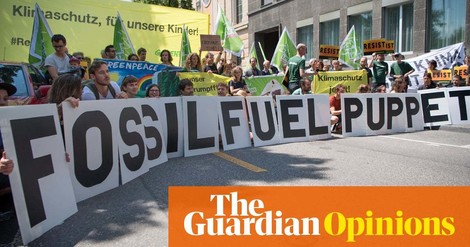Your podcast discovery platform
Curious minds select the most fascinating podcasts from around the world. Discover hand-piqd audio recommendations on your favorite topics.

piqer for: Climate and Environment Global finds Globalization and politics
I'm a freelance journalist, currently based in Madrid. I used to be a News Producer at CNBC in London before, but I thought a little bit more sun might do me good. Now I write for several news organizations, covering a range of topics, from Spanish politics and human rights for Deutsche Welle to climate change for La Marea.
Conservatives Are Not Climate Deniers — Fossil Fuel Industry Puppets Are
It's not unusual to perceive national climate action as something more often aligned with progressive governments. Conservatives, accordingly, are thought of as climate science deniers. However, that's not necessarily always true.
You can easily find right-wing leaders who maintain an ambitious climate policy or at least leave no rhetorical doubt of their position. Take the UK, for example, where the Theresa May's Tory cabinet has surprised the world with a very bold climate plan (led by no other than Michael Gove, go figure). On the other hand, Portugal's progressive government has recently been accused of subsidizing fossil fuel operations.
Of course, the image of the climate change denying conservative has been reinforced by Donald Trump, who has not only withdrawn the US from the Paris agreement but very often voiced his contrarian views on science. From calling the whole issue a Chinese fabrication to saying that the polar caps are "doing great", his positions are often repeated by American conservative pundits and sympathizers.
But why America? According to this research, it's all about vested interests. Countries with very strong fossil fuel industries, such as the US and Australia, are more likely to have climate change denying conservative politicians. The author of the study claims that fossil fuel companies "coach" the politicians to believe that climate science is not settled, who then have a "massive" influence on voters:
"When the vested interests are high (in terms of the fossil fuel industry, for example) then there is more of a motivation for big business to engage in an organised campaign of misinformation around climate change. These campaigns often develop as a collaboration between the fossil fuel industry and conservative think tanks, media and politicians"
The story includes a brief analysis of the study (published in Nature Climate Change a month ago) and a very interesting interview with its author.
